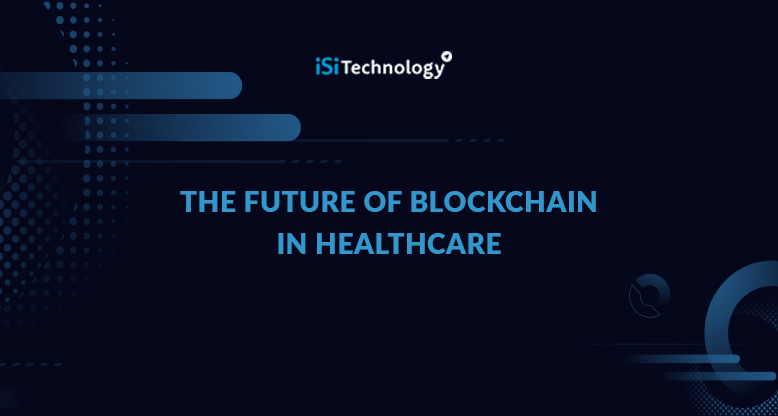The Future of Blockchain in Healthcare

Blockchain technology is continuously expanding its reach across various industries. Public services and economies are leveraging blockchain to reduce risk and increase transparency. But how can it be used in healthcare services?
The possible benefits of blockchain for the healthcare industry can be profound and extensive. Let’s explore the possibilities that it can bring.
What is Blockchain?
Blockchain technology is a shared database within a network. It uses digital ledgers to record data, and all transactions are grouped in “blocks” and “chained” together through cryptography.
Each blockchain is digitally protected with a unique signature for each group, which prevents alterations and manipulation. Users could still share and store data transparently but much more securely than any other system.
Some play-to-earn (P2E) online games use blockchain technology. In P2E games that use blockchain technology, players can earn cryptocurrencies or other valuable digital assets by playing the game. These games use non-fungible tokens (NFTs) to represent unique in-game assets such as weapons, skins, characters, and more. Each NFT is stored on the blockchain and is owned by a specific player, making it a scarce and valuable asset.
Bitcoins and cryptocurrencies also use blockchain technology to secure accounts and client information. This enables these platforms to protect the user’s data, credentials, and profiles. Overall, P2E games that use blockchain technology offer a new way for players to earn real value while playing games. By using NFTs and cryptocurrencies, these games allow players to truly own their in-game assets and currency, while also providing a secure and transparent platform for gameplay.
In healthcare, blockchain can protect patient records, making it a secure and fraud-proof method for data sharing and storage.
The Benefits of Blockchain in Healthcare
Blockchain’s unique characteristics make it easier for healthcare providers to access vital data. It protects the information of patients, management, and even financial processes.
Here are some of the benefits that blockchain technology can provide.
Reduces Fraud and Errors
Blockchain technology can significantly reduce fraud in healthcare because of the secure system it provides for storing data. But how does it do this?
Blockchain has four qualities that make it a safe system:
Decentralization
Blockchain technology is decentralized, which means no central system verifies and controls all transactions. The database is spread throughout various locations and networks.
This protects all information contained in the system because if one data point is altered, the others are not affected. Decentralization maintains the integrity of the information through the data stored in other areas of the network.
Cryptography
Cryptography uses encryption and digital signatures to check data in a blockchain system. It uses mathematical algorithms to verify all transactions to ensure privacy and integrity.
Ledgers
Blockchain ledgers prevent alterations or deletions. Data recorded within the blockchain is impossible to change because of this permanent physical record. This makes it difficult for hackers and fraudsters to use digital data to their benefit.
Smart Contracts
Smart contracts automate system processes. The codes for these contracts include rules that allow auto-execution for actions if certain conditions are met.
Using smart contracts allows any organization to trigger transactions, such as payments, without any additional requirements or steps.
Ensures Transparency and Security of Electronic Health Records
Blockchain is entirely transparent, so it can store electronic health records safely. Healthcare providers can easily share patient data and gain access to vital information that can improve treatment.
It empowers patients to control their data and protect their own privacy through blockchain technology.
Clarifies and Improves Supply Chain Management
The movement of medical and health supplies and pharmaceuticals is much easier to trace. The transparency of the information allows companies to monitor each element of the supply chain and minimize the production of fake drugs and medication.
How Blockchain Technology Can be Implemented in Healthcare

Blockchain technology can provide many benefits to the healthcare industry. But before these applications can become widespread, the industry needs to make some changes for implementation.
Here’s what healthcare providers and facilities need to do:
Use Electronic Health Records (EHR)
Healthcare facilities must transition entirely to electronic health records so they can store and share data securely within their systems. This transparency will allow easy sharing, and blockchain can prevent the alteration of important data.
Using blockchain for medical records allows physicians to review patient data with ease, as all records or lab results are recorded in the system. When doctors access data, it is registered as a transaction and counterchecked across systems for any alterations.
This allows physicians to focus on their patient’s health instead of bureaucracy and protects their health information.
Automate Transactions Through Smart Contracts
Using smart contract systems in blockchain technology allows pharmaceutical companies, wholesalers, insurance companies, and healthcare providers to automate tracking and monitoring.
Contract details include codes that automate and authenticate transactions. Doing this ensures the efficient movement of the supply chain. It also reduces questions and delays when it comes to payments and contract fulfillment.
Changes in rates, delivery delays, and other such inconsistencies can be quickly reviewed with blockchain. All parties can access the same contracts and trace all updates to a specific source.
Use IoT for Remote Monitoring
Using the Internet of Things (IoT) as a remote monitoring solution can improve patient care and services. Some facilities can also use IoT to improve preventative healthcare. Remote monitoring allows physicians to check on patients through any connected device with an app.
Encryption through blockchain will ensure that the patient’s data remains private and protected at all times. This resilient system prevents hackers or cyber attacks from compromising stored data.
Of course, healthcare facilities will still need to put advanced security systems in place. Even if the entire system is within the blockchain, a comprehensive security system is still necessary to protect against other potential attacks.
The Cost of Implementing Blockchain
The total cost of implementing blockchain in healthcare will vary. Some companies estimate they need at least $500,000. Fortunately, the return on investment promises to be significant—it can save the healthcare industry at least $100 billion a year.
The total cost of implementation will depend on the following:
Type of Blockchain Technology
On average, most healthcare facilities will need to spend at least $1500 a month for a private blockchain. Public blockchains are less expensive, but their overall transactions can cost more.
Public blockchains also provide more security. The data is spread over several networks and nodes, which makes it more difficult to alter or compromise in any way.
Private blockchains restrict access to its networks to a limited number of stakeholders. They provide more customization and control to an organization, which is a more suitable system for finance, record-keeping, and supply management.
Hardware and Infrastructure
Hardware and infrastructure expenses depend on the size of the organization. The number of servers, networks, and storage systems will vary depending on the amount of data that will be handled and the number of users and stakeholders.
Healthcare systems will also need platforms or software like ISI Technology that can manage billing, performance management, and record keeping. They can integrate these platforms into the blockchain, so all elements of the system are linked.
Project Scale
The number of stakeholders and partners connected to a healthcare facility will affect the scale of the project. More stakeholders will need more complex systems, as more networks must incorporate more data and individual users.
Development and Deployment
Implementing blockchain technology will require a team with expertise and skill that can make complex systems easier to digest. This will incur costs, as well.
Additional training for employees and users will also require significant resources for healthcare facilities. However, this new system will significantly improve overall efficiency, so the investment is worth it.
How Blockchain Can Reduce Costs in Healthcare

Using blockchain in healthcare can lower costs for patients and providers in many ways:
Verifies Data Automatically
Payment issues and consumer claims can be processed more quickly, as automatic data verification is a time-efficient way to deal with these issues. It can also improve customer service through quick resolution.
Reduces the Loss of Supplies and Equipment
Because companies can closely track the supply chain, the loss of materials and supplies can be quickly reviewed. It can also reduce the number of counterfeit drugs inadvertently sold or distributed.
Limits Customer and Healthcare Fraud
Every year, patients and healthcare facilities face fraud in documentation and payments. Blockchain can significantly reduce these issues, as all data is protected and cannot be changed.
Efficiency and Improvement of Clinical Trials
Clinical trials will be more efficient and less time-consuming with blockchain. A robust system can also improve the accuracy of the tests and reduce the risk of errors. Healthcare facilities will also have more accurate data to help improve patient care.
Blockchain Technology is the Future of Healthcare
Many businesses all over the world now use blockchain technology for online transactions and financial management. It has greatly impacted data security and financial decisions, and it has tremendous potential when applied to healthcare services.
It can save the healthcare industry billions of dollars in the future and improve the lives of millions of patients. Healthcare facilities can protect patient data and shape how patient care is delivered in the future.
For now, the healthcare industry must find cost-effective, practical ways to address the challenges of blockchain implementation. Using the latest innovations, such as robust software like ISI Technology and other healthcare trends, can change the face of healthcare.